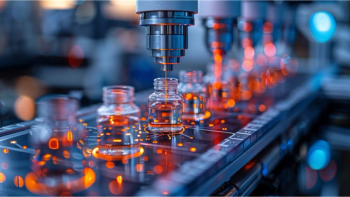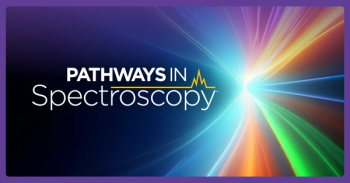
Near-Infrared Spectroscopy Combined with Multivariate Algorithms for Rapid Evaluation of Radix Paeoniae Alba and Its Processed Products
Researchers have developed a rapid and non-destructive method for evaluating the quality of Radix Paeoniae Alba and its processed products using near-infrared (NIR) spectroscopy combined with multivariate algorithms.
A team of researchers from Nanjing University of Chinese Medicine in Nanjing and Anhui University of Chinese Medicine in Hefei, China, has developed a new method for the rapid evaluation of Radix Paeoniae Alba (RPA) and its processed products (1). RPA is an herbal medicine with various processing methods, and the different processed products have different clinical efficacies. However, it can be difficult to differentiate between the various processed products, making quality control (QC) a challenge.
To address this challenge, the researchers used near-infrared (NIR) spectroscopy combined with multivariate algorithms to distinguish between RPA and its processed products and to predict the content of five bioactive components. The researchers found that the subspace clustering algorithm successfully differentiated RPA and three processed products, with an accuracy rate of 97.1%. Additionally, the interval combination optimization (ICO), competitive adaptive reweighted sampling (CARS), and CARS-SPA algorithms were used to optimize the partial least squares (PLS) model, resulting in satisfactory results in terms of wavelength selection.
The CARS-SPA algorithm is a combination of two methods used for selecting optimal wavelengths in near-infrared (NIR) spectroscopy. The competitive adaptive reweighted sampling (CARS) algorithm is used to select the most informative spectral variables, and the successive projections algorithm (SPA) is used to remove redundant variables. By combining these two algorithms, the CARS-SPA method can select a minimal set of informative wavelengths while retaining the most important spectral information. The CARS-SPA algorithm is particularly useful when dealing with high-dimensional data sets, as it can effectively reduce the number of variables and improve the performance of multivariate models.
The use of NIR spectroscopy and multivariate algorithms for the rapid evaluation of RPA and its processed products has several advantages. First, the method is non-destructive and rapid, making it ideal for large-scale QC. Second, the method is accurate, with an accuracy rate of 97.1% for qualitative differentiation between RPA and processed products. Third, the method is quantitative, allowing for the prediction of the content of five bioactive components.
The researchers note that this method could be used as a reference for the quality control of other herbal medicines with numerous processing methods. In conclusion, the use of NIR spectroscopy combined with multivariate algorithms is a feasible and efficient method for the rapid evaluation of the effect of processing methods on the quality of RPA and other herbal medicines. The study is published in the journal Analytical and Bioanalytical Chemistry (1).
Reference
(1) Zhang, J.; Li, Y.; Wang, B.; Song, J.; Li, M.; Chen, P.; Shen, Z.; Wu, Y.; Mao, C.; Cao, H.; Wang, X.; Zhanb, W.; Lu, T. Rapid evaluation of Radix Paeoniae Alba and its processed products by near-infrared spectroscopy combined with multivariate algorithms. Anal. Bioanal. Chem. 2023, 415, 1719–1732. DOI:
Newsletter
Get essential updates on the latest spectroscopy technologies, regulatory standards, and best practices—subscribe today to Spectroscopy.




